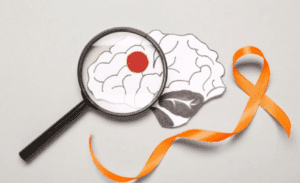Multiple Sclerosis (MS)
What is multiple sclerosis?
Multiple sclerosis (MS) is a neurological (brain-related) disease that affects the communication between the brain and the rest of the body. A person’s immune system attacks the protective covering of nerve cells known as the myelin sheath. In advanced cases, the nerves can be permanently damaged by the immune system’s attacks.
MS has two main types: relapsing and remitting or progressive. In relapsing and remitting MS, there are long periods of remission before episodes of intense symptoms. Progressive MS cases continues to progress without remission periods and may result in complete loss of daily life function. The course of the disease is unpredictable.
There is some difficulty in estimating prevalence of multiple sclerosis because cases commonly go undiagnosed or misdiagnosed for years. According to the United States National MS Society, an estimated 2.3 million people worldwide have MS, based on information gathered from abroad. An estimated 400,000 of those live in the U.S. This is slightly less than 1% of the total population.
What causes multiple sclerosis?
Multiple sclerosis does not have a known cause. Most doctors consider it an autoimmune disease, meaning that the body’s immune system attacks parts of the body. The immune system attacks the coating of the nerve cells (myelin). The exposure of nerve fibers results in slowed or blocked neuro messages.
MS may occur at nearly an age, most commonly in young adults through middle age (15-60). Women are approximately twice as likely to develop MS. There seems to be some hereditary connection. However, a combination of genetics and environmental factors seems most likely to be the cause.
What are common symptoms of multiple sclerosis?
All parts of the body may be affected; in particular, muscles in the extremities and the eyes are most commonly involved.
Symptoms of MS present in a wide variety of ways. The first symptoms usually appear between the ages of 20 and 40. MS may cause weakness, numbness, loss of coordination, and balance. Problems with speech, vision, and bladder control are also hallmarks of the disease.
What treatment options are available for MS?
There is no cure for MS, though symptoms can be treated.
Where can I find more information about multiple sclerosis (MS)?
Multiple Sclerosis (MS) Articles

Breakthrough in MS Research: First Patient Scanned with New PET Tracer in Clinical Trial

From the MS Community of Southwest Virginia: Gratitude for Dr. Jill Cramer

Jeri’s MS Story: How One Ramp Brought a Renewed Sense of Hope

Gene’s Greatest Save: A Goalie’s Multiple Sclerosis Journey


Canadian Immigrants See Multiple Sclerosis Risk Increase the Longer They Live There

New Data Available from Phase 3 Trial on Zeposia for Multiple Sclerosis



